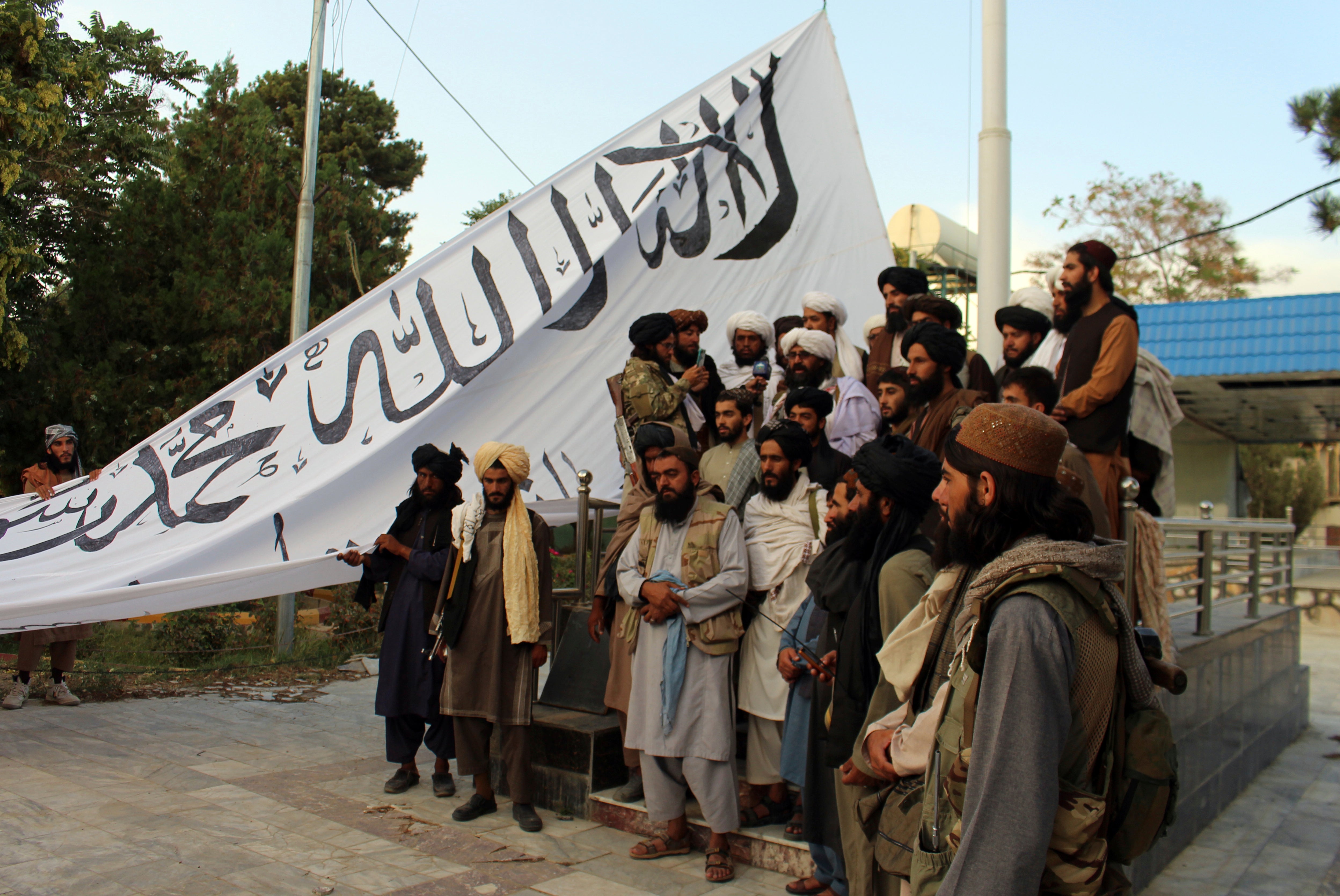The flag of the Taliban is flying over Her Britannic Majesty’s embassy in Kabul (now “just a building”, according to the defence secretary, Ben Wallace). The mujahideen are patrolling around in Humvees and armoured vehicles left behind by US and Afghan forces. The executions and persecutions have begun. The leaders of the insurgency are lounging around in the presidential palace. To borrow a phrase, the Taliban have seized power almost without a shot being fired. It is difficult to summon up much optimism about the Islamic Emirate of Afghanistan, as we must now learn to call it.
What is in the minds of the Taliban’s leaders? It is too easy to dismiss them as crazed, misogynistic religious extremists, though they certainly are that. They have been shrewd enough to survive a two-decade campaign by everything the west had to throw at them, and at the end, they are back. They are certainly driven by a medieval ideology and will push their luck as far as they can. The question is, when the west calls on the Taliban to respect human rights, especially those of girls and women, and wants it to stop sponsoring terrorism as it did before, will the Taliban pay any heed? Probably not.
The experience of the last period of Taliban rule and the more recent experience of its resurgence suggests that it does not respect the Islamic quality of mercy. Its spin doctors have made some appeasing noises, but even those suggest that no Afghan female can expect to be educated beyond the age of 12, or follow a professional career or even dress as they wish. Much worse might turn out to be the reality.
Worse still, President Biden, in an embarrassingly weak TV interview the other day, didn’t even signal that America would do much to protect human rights in the territory of its former ally. Mr Biden suggested that there were plenty of countries America could intervene in to protect human rights, such as with China and the Uyghur people, but it was simply politically impossible and impractical to do so.
True enough, but he seemed to have forgotten that the US was doing precisely that in Afghanistan and pinning the Taliban back until he made his blunder of announcing an irrevocable date for US withdrawal. He, like Donald Trump, knew full well the consequences of his actions in abandoning Afghanistan. He left the people there, with the exception of a few refugees, to their fate, and that fate is all too predictable. America, despite all the casualties and all the money spent, now won’t lift a finger to help them.
As for terror, the Biden administration plainly thinks that the Taliban will be warned off incubating any new Bin Laden figures and allowing the likes of al-Qaeda or Isis to use its country as a training facility. The working assumption (it seems) is that the Taliban will be deterred by the prospect of massive American retaliatory bombing raids, and behave itself. The answer to that is that the Americans tried all that in 2001 with the gigantic “daisy cutter” bombs dropped on the Tora Bora mountains, and the Taliban still refused to hand over Bin Laden. When the UN-sponsored ground force arrived with its advanced technology and air superiority, the Taliban simply melted away. It was another example of the US struggling with asymmetric warfare, and the White House doesn’t seem keen on repeating the experience in any case.
Even if the Taliban tries to behave more like a conventional, responsible administration, it seems likely that it will find it difficult to retain control over the whole country. It will have to contend with a democratic resistance force, with the usual tribal loyalties, the arrival of groups such as al-Qaeda and Isis, plus interference from ill-intentioned neighbours such as Iran, Pakistan and Uzbekistan. Complicated and shifting alliances will probably scrap over territory and the heroin poppy trade. The Taliban may well have to rule with the consent of other powerful forces.
The outlook, then, could scarcely be worse. Afghanistan seems set on a path to being the most failed and tragic of failed states. It cannot be blamed for it.




Join our commenting forum
Join thought-provoking conversations, follow other Independent readers and see their replies
Comments